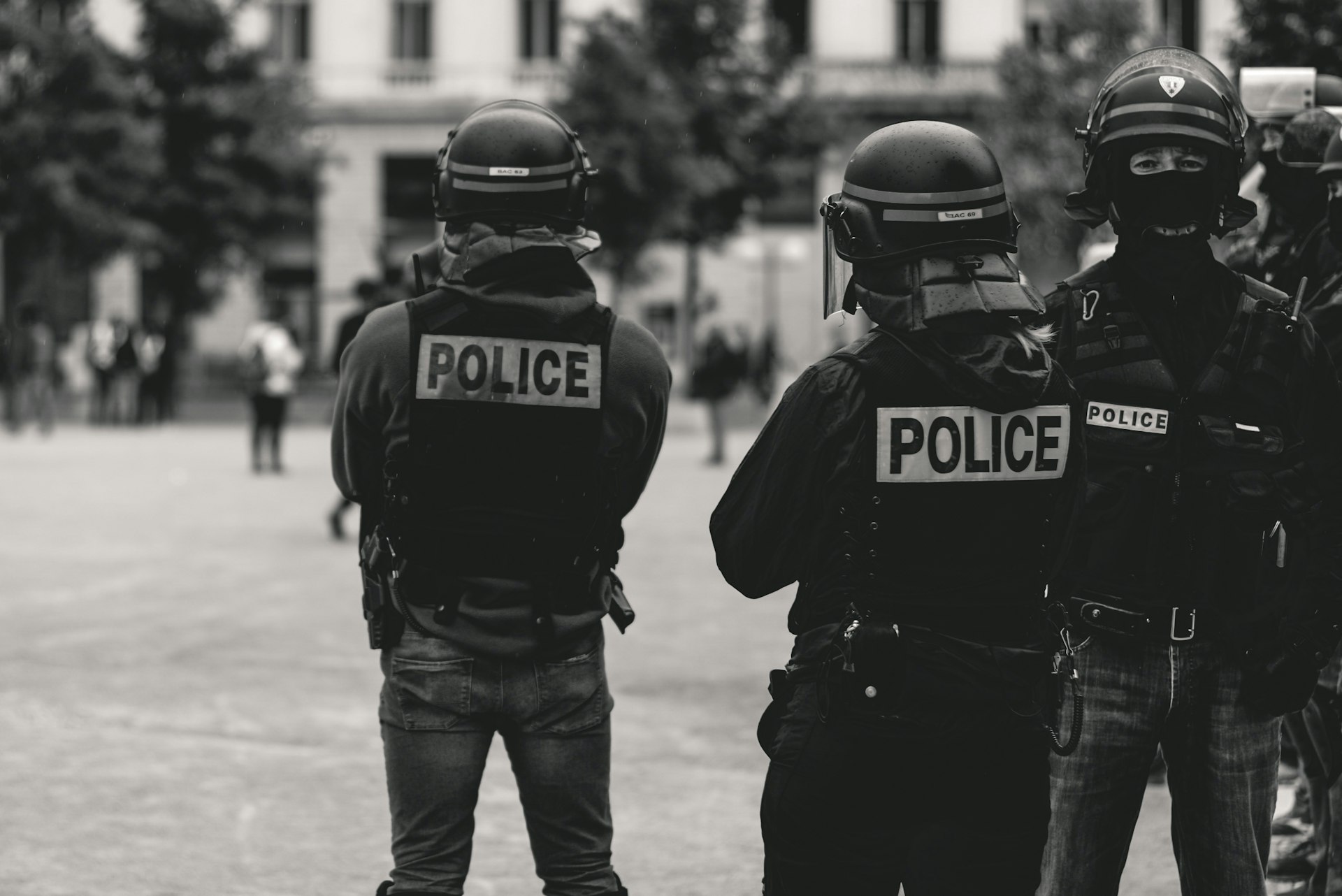In London, there is one CCTV camera for every fourteen people. But there are at least eight million residents with smartphones. When police brutality escalates in Hong Kong, and the murder of a black man is filmed by passers by in the US, they look like our greatest defence.
As the people resist in cities across the US through peaceful protest, the police fight back. But they do not do so in secret. They act in the plain view of social media.
In 2015 in South Carolina a story broke that a man had been shot by the police when he attempted to use an officer's taser against him. The officer "felt threatened ... and fired his weapon" the tale told.
Then came the smartphone footage.
Walter Scott was running away, unarmed, his back facing Officer Micheal Slager as he was hit by at least one of eight rounds. Scott died after being handcuffed and receiving no medical attention. Slager was charged with murder.
In the UK last week, smartphone footage caught a black key worker handcuffed for no clear reason by a white officer.
And Hong Kong has faced months of police brutality, including legislators being violently arrested, all caught on film.
Would George Floyd have seen justice if passers by had not pointed their phones at the officer on his neck?
When those in power do not follow the rule of law, we can no longer trust their systems. It becomes the people's job to hold them to account and to document. When the press are abused by the President, when their legitimacy is weakened or they are physically attacked, the people must keep watch.
When the police feel protected by the state, they have no boundaries. The next time an officer kneels on a black man's neck he will remember 2020, the protests and the violence, and know that he is not as protected as he once was. That is as much of achievement than Floyd’s killer’s arrest.
It is the people's power that can erode the systems that protect prejudice and that entrench racism in our society. They have the greatest tool: a high resolution camera in their pocket.
I do not endorse a surveillance state. I hope when Apple and Google release glasses that connect to our phones, they will not have cameras. I am uncomfortable with a Facebook smart home device that can see me sleep. But the ability to keep check on those who feel invincible is a fundamental part of democracy.
Body cameras could be the answer. They are a valuable tool for law enforcement. Yet in Connecticut, where a body cam program began in 2016, less than half of the state's departments took advantage of funding in the first three years it was available.
In a twelve month study in the US, officers randomly assigned to wear body cameras used force 25 times, down from 61 before the experiment. The majority of incidents involved officers not wearing cameras.
While cameras do reduce complaints against officers as they can no longer lie, they remain in the police’s control at every level: the departments on whether to use them, the officers on whether to turn them on. It is not reasonable to expect anyone to be monitored at all times during their job — some privacy is acceptable, but first the police must begin to foster trust.
There is a video circulating on social media of a black police officer berating a white colleague for assaulting a non-violent, seated, protester. For a moment, smartphone footage made us sympathise with — even respect — law enforcement. The police should be protected by the same people that hold them to account: us. We need the police’s help to regain our faith.
When Walter Scott fell to the ground, the officer looked back: did anyone see that. With our smartphones, the answer should always be yes.
